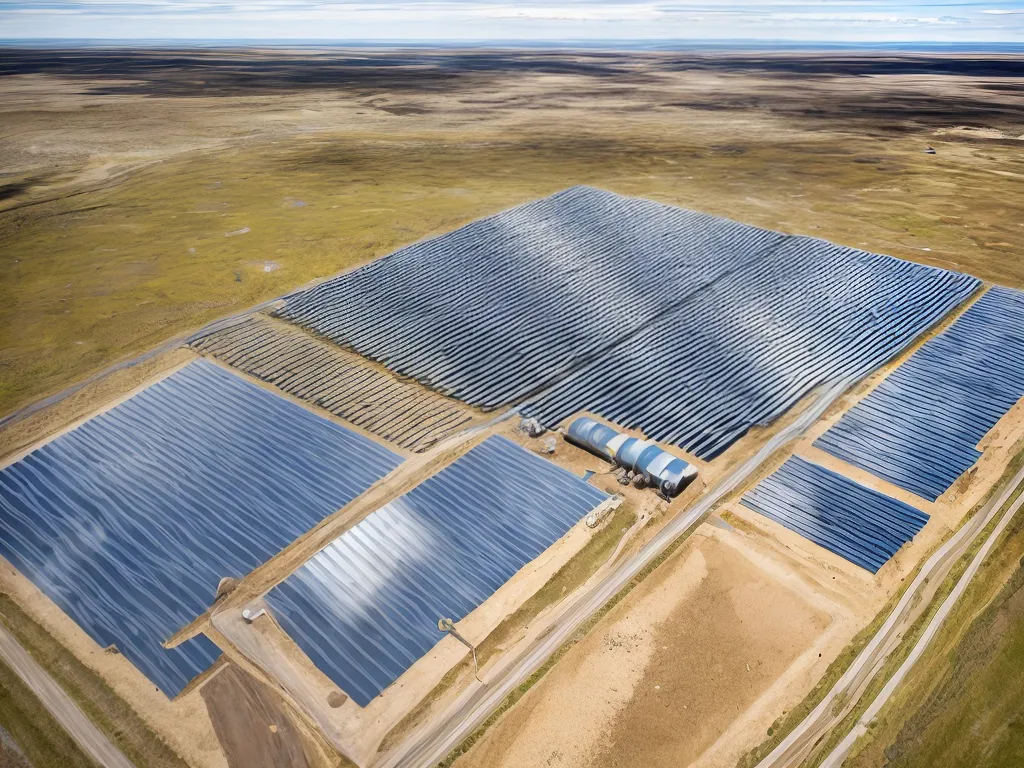
Introduction
Small towns across the country are struggling. Declining populations, limited job opportunities, and shrinking tax bases are threatening their survival. However, beneath their feet could be the solution - geothermal energy. Geothermal resources have the potential to power small towns sustainably and affordably, providing energy security, jobs, and new revenue streams. Yet geothermal remains overlooked and underutilized, especially among rural communities that stand to benefit the most.
In this article, I'll examine why geothermal energy is well-suited for small towns, the economic and environmental benefits it can provide, and why local leaders and policymakers fail to embrace this promising renewable resource. Understanding the transformative impact geothermal could have if more small towns embraced it can hopefully inspire a change in how we view and utilize this valuable energy source.
Why Geothermal Energy Works for Small Towns
Geothermal energy - derived from the natural heat within the earth - offers several unique advantages for small towns seeking affordable, reliable power generation.
Abundant and Reliable Resources
Geothermal resources are found across the United States, often in rural areas near small towns. According to the U.S. Department of Energy (DOE), geothermal power could provide up to 60,000 MW of baseload capacity, making it a viable at-scale option. And unlike solar or wind, geothermal offers consistent output 24/7, providing a reliable base supply.
Local Control and Energy Security
Developing local geothermal resources allows small towns to control energy pricing and supply, freeing them from uncertainty and reliance on external utilities. Profits also remain local, benefiting the community. This increased energy security and supply resilience is priceless for remote towns.
Cost Competitive and Scalable
Geothermal power costs between 5-8 cents per kWh, competitive with fossil fuels. Plants can start small then expand as needed. This scalability makes geothermal attractive for small towns with limited demand. The ability to start small, then grow capacity aligns well with rural development.
Jobs and Economic Ripple Effects
Geothermal plant construction and ongoing operations provide direct, high paying jobs. Resource drilling, piping installation, and maintenance require specialized skills, benefiting local workers. The associated economic activity and cost savings ripple through the community. This stimulates the local economy from the ground up.
The Benefits Geothermal Can Provide Small Towns
Beyond the inherent advantages above, geothermal offers small towns concrete benefits that enhance sustainability, prosperity, and overall quality of life.
Low Cost, Stable Power Prices
Geothermal provides electricity at about 5 cents per kWh for plants under 10 MW. And unlike fossil fuels, fuel prices are negligible long term, insulating towns from price spikes.
Cheap, predictable energy costs allow small businesses to thrive and residents to afford basic needs.
New Revenue Stream and Local Wealth Generation
Geothermal plants can provide direct revenue to small towns via operational fees, electricity sales, and leases on subsurface resources. Plants with excess capacity can also export and sell power regionally. This new income source benefits town budgets and builds local wealth.
Reduced Environmental Impact
Geothermal emits essentially zero direct emissions, and has a tiny surface footprint per kWh generated. Using local geothermal resources slashes a small town's overall emissions intensity, preserving local air quality and public health. The small spatial footprint also reduces habitat disruption.
Job Creation and Skill Development
Constructing, operating, and maintaining geothermal plants requires many specialized roles - drillers, technicians, engineers, geologists, etc. These are well-paying local jobs, with broader benefits through local spending. Workforce training programs provide skills needed for generational success.
Population Retention and Growth
Affordable electricity, good jobs, clean environment, and economic optimism have ripple effects, making small towns more attractive places to live and work. Geothermal can stabilize or grow local populations, preserving communities for the long term.
Why Small Towns Fail to Adopt Geothermal - And How to Change That
Despite the clear benefits, geothermal remains severely underutilized by small towns. Various financial, perceptual, and political barriers explain this mismatch between potential and reality. Here are the key obstacles and how to overcome them.
High Upfront Capital Costs
Drilling wells thousands of feet into hot rock is expensive. And as small tax bases limit debt financing, the large upfront capital costs deter small towns from exploiting their geothermal resources.
But alternatives like revolving loan funds, crowdsourced funding, and joint ventures with external developers can ease the capital burden. And the long operating life of geothermal plants combined with incentivizing power purchase agreements or sales to larger grids make projects financially viable long term.
Perception as Unproven or High Risk
Geothermal is also hindered by being perceived as experimental or risky. But decades of successful operations at plants like The Geysers in California demonstrate geothermal as a proven technology at scale when sites are selected and developed carefully.
Better education on successful geothermal projects and available risk mitigation measures like drilling insurance and public-private partnerships can overcome conservatism and build trust in geothermal.
Lack of Supportive Policies
Inconsistent tax credits, permitting delays, and lack of targeted policy support slow geothermal adoption. Meanwhile, fossil fuels enjoy extensive subsidies. Leveling the policy playing field with tax credits, feed-in tariffs, or mandates for utilities to buy geothermal power can accelerate development.
Streamlining permitting also reduces development timeline risk. And funding research into advanced techniques like enhanced geothermal systems (EGS) can expand accessible resources.
Conclusion
The potential for geothermal energy to sustainably power and revive small towns across America is immense yet largely untapped. With the right mix of finance, training, policy, and public-private collaboration, geothermal can provide affordable and reliable energy along with jobs and economic prosperity on a local level for generations to come.
Policymakers and community leaders must recognize geothermal as a viable path forward for struggling rural towns. Then they must actively facilitate development through supportive policies, partnerships, and programs. executes this model, geothermal energy could indeed save small towns - but only if we care enough to actually make it happen. The benefits are under our feet, if we have the will to reach down and grab them.